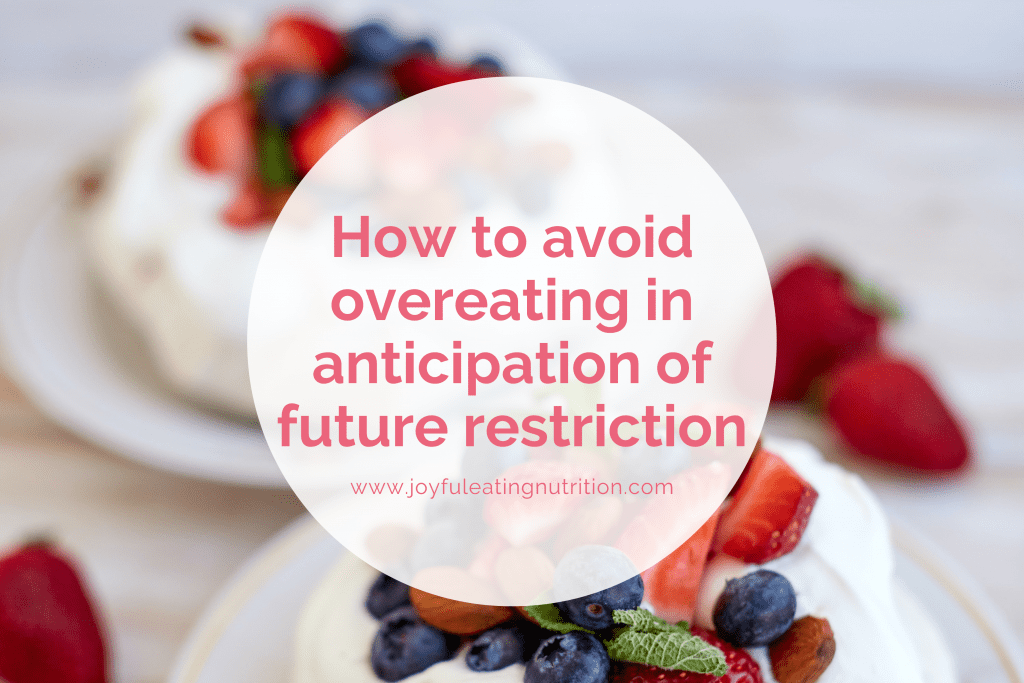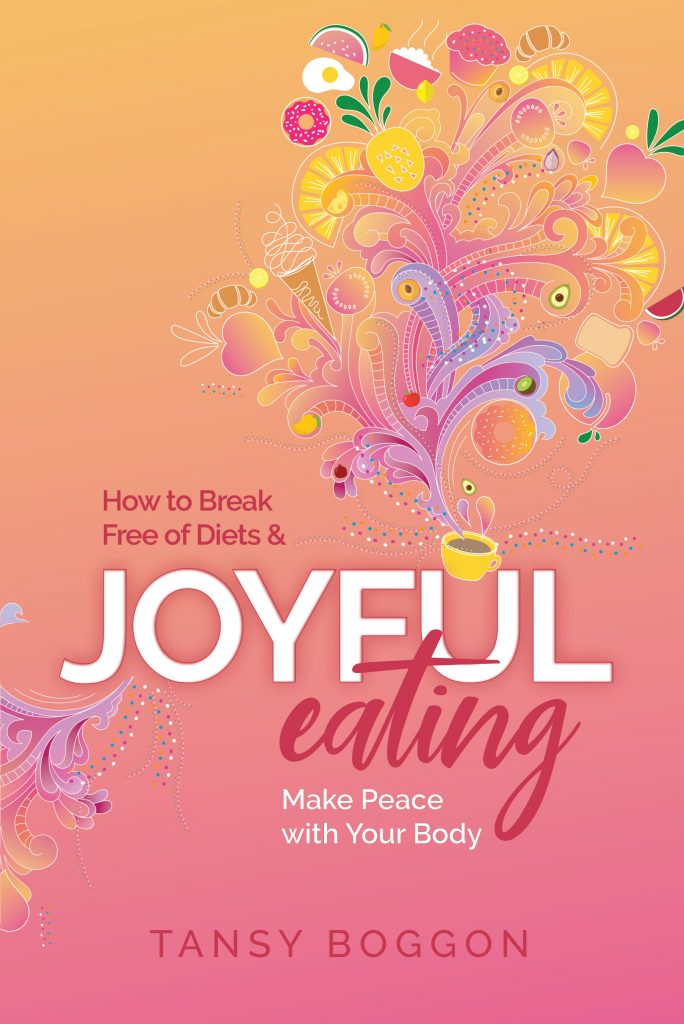Thinking the ‘diet starts tomorrow’ can lead to overeating in anticipation of future restriction, whether it’s the New Year or any Sunday when the diet starts Monday.
Imagine this, it’s Sunday evening, and there is ice cream remaining in the freezer, and some of the cookies your mum kindly brought over left in the pantry. You’re sitting on your couch watching TV when your mind wanders to what’s in the kitchen … there’s ice cream in there … and cookies. No, I really shouldn’t eat them, you think. Yet, the nagging voice keeps reminding you that there are treats in the kitchen.
You begin to think of the healthy meals you’ve planned this week and how you’ve declared to yourself that you’re going to be good: no chocolate, chips or other treats are passing through my lips, all week, you’ve declared.
The diet starts tomorrow
Tomorrow is Monday, and we all know ‘the diet starts on Monday’.
I’ll start eating healthy tomorrow, you tell yourself as you head to the kitchen for the cookies.
You sit back down in front of the TV and munch away on the cookies until they’re all gone. Well, that’s a relief, you think as you dust the cookie crumbs off. They’ll no longer haunt you throughout the week or sabotage your efforts to eat healthily.
Cookie Monster Eating Cookie! Om nom nom!
Yet, the ice cream remains …
You couldn’t possibly eat ice cream during the week; that would be unhealthy, plain and simple—it doesn’t fit into your eating plan at all.
You’re not particularly hungry, but you need to get the ice cream out of the house before the week starts, before you start being good. And thus, before you know it, you’re sitting there on the couch with a spoon and the tub of ice cream, feeling relieved and disgusted with yourself all at the same time.
You feel ashamed. Yet, you believe you can use this as motivation for tomorrow … for tomorrow I’ll be good, you affirm.
Does any of this sound familiar?
In my twenties, I did this many times, maybe most weekends. I’d overindulge on the weekend on all the foods that I’d forbidden myself to eat during the week.
And I’m not alone in this.
A study of forty-six female university students found that participants who were expected to diet for one week ate significantly more when asked to taste-rate cookies than the control group, who weren’t told they’d go on a diet [1].
The last supper effect
Eating in anticipation of future restriction is known as the last supper effect. It is the final hurrah of eating before the dreaded hunger and temptation of all the foods you can’t eat kicks in.
Joyful Eating: How to Break Free of Diets and Make Peace with Your Body
“… practical tools to help people release their sabotaging thoughts, enabling them to eat more intuitively and find joy in the moment.”
— Michelle Stanton, author of The Timeless World.
How to avoid overeating in anticipation of future restriction?
If no foods were out of bounds; if no foods were weekend, holiday, treat or naughty foods. Or, if you could eat all foods without restriction, the last supper effect, which is essentially the result of anticipation of deprivation, would dissipate.
Furthermore, suppose you no longer felt guilt or shame that led to self-depreciating thoughts or unrealistic expectations. You’d be less likely to set yourself up for overeating in anticipation of future restriction, and thus failure.
If you’re ready to ditch diets and diet mentality for good and begin the New Year with a healthier relationship with food and your body, grab yourself a copy of Joyful Eating: How to Break Free of Diets and Make Peace with Your Body.
Reference:
- [1] Urbszat D, Herman CP, Polivy J. Eat, drink, and be merry, for tomorrow we diet: effects of anticipated deprivation on food intake in restrained and unrestrained eaters. J Abnorm Psychol. 2002; 111(2): p. 396-401.


